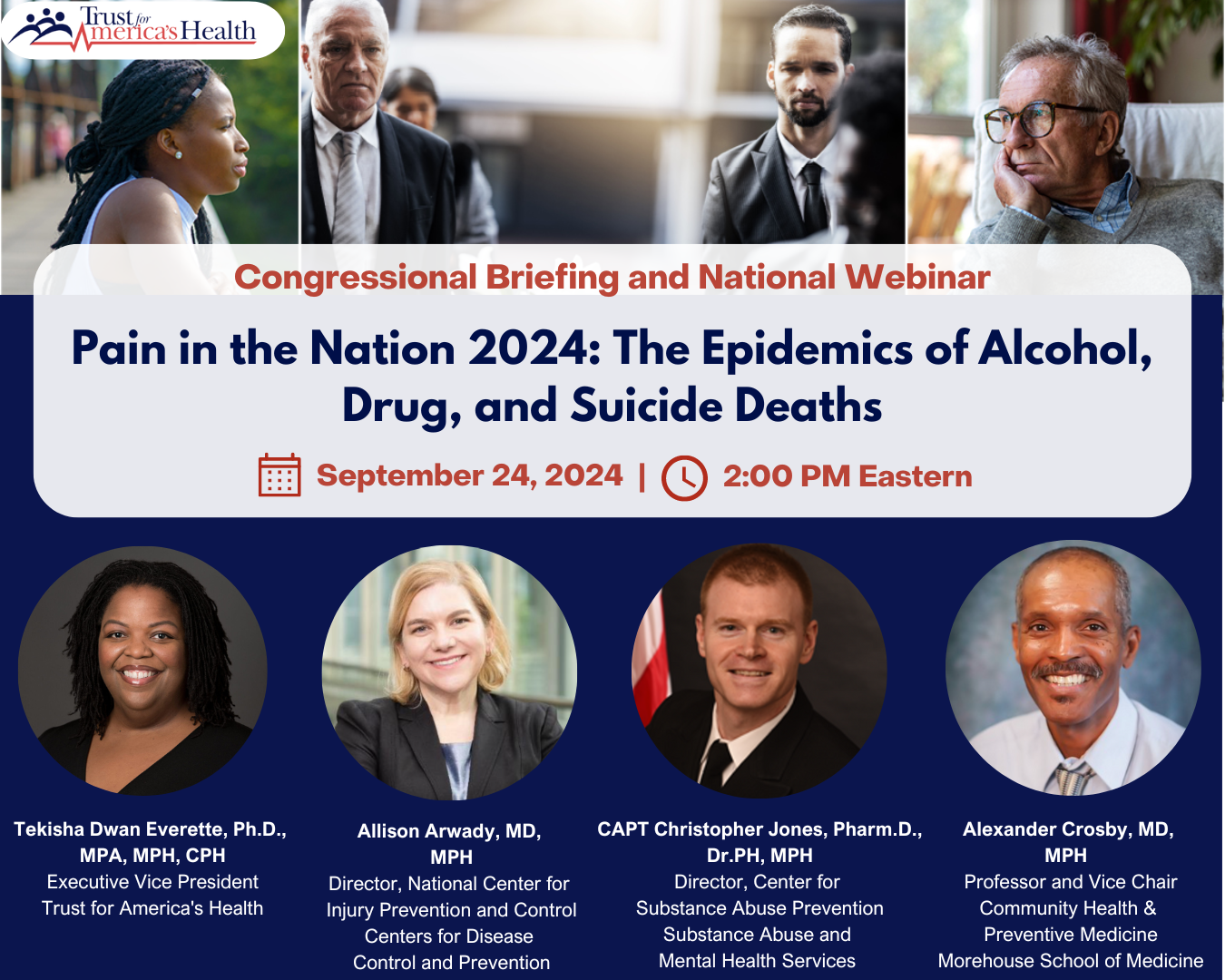
Trust for America’s Health (TFAH) hosted a national webinar on our report, Pain in the Nation 2024: The Epidemics of Alcohol, Drug, and Suicide Deaths.
TFAH’s report found that a decrease in the alcohol-induced mortality rate led to a slightly lower combined rate of all U.S. deaths due to alcohol, drugs, and suicide in 2022, but the long-term trend of such deaths is still alarmingly high. Between 2002 and 2022, combined deaths due to alcohol, drugs, and suicide have increased by 142 percent from 74,003 deaths in 2002 to 207,827 deaths in 2022. For 2022, the alcohol-induced mortality rate decreased by six percent to 13.5 deaths per 100,000 people, the first decrease in the rate after more than a decade of increases, but death rates for drug overdose and suicide remained unchanged. The report also includes a special feature on polysubstance misuse and overdose.
The webinar discussed steps policymakers should take to begin to reverse these crises.
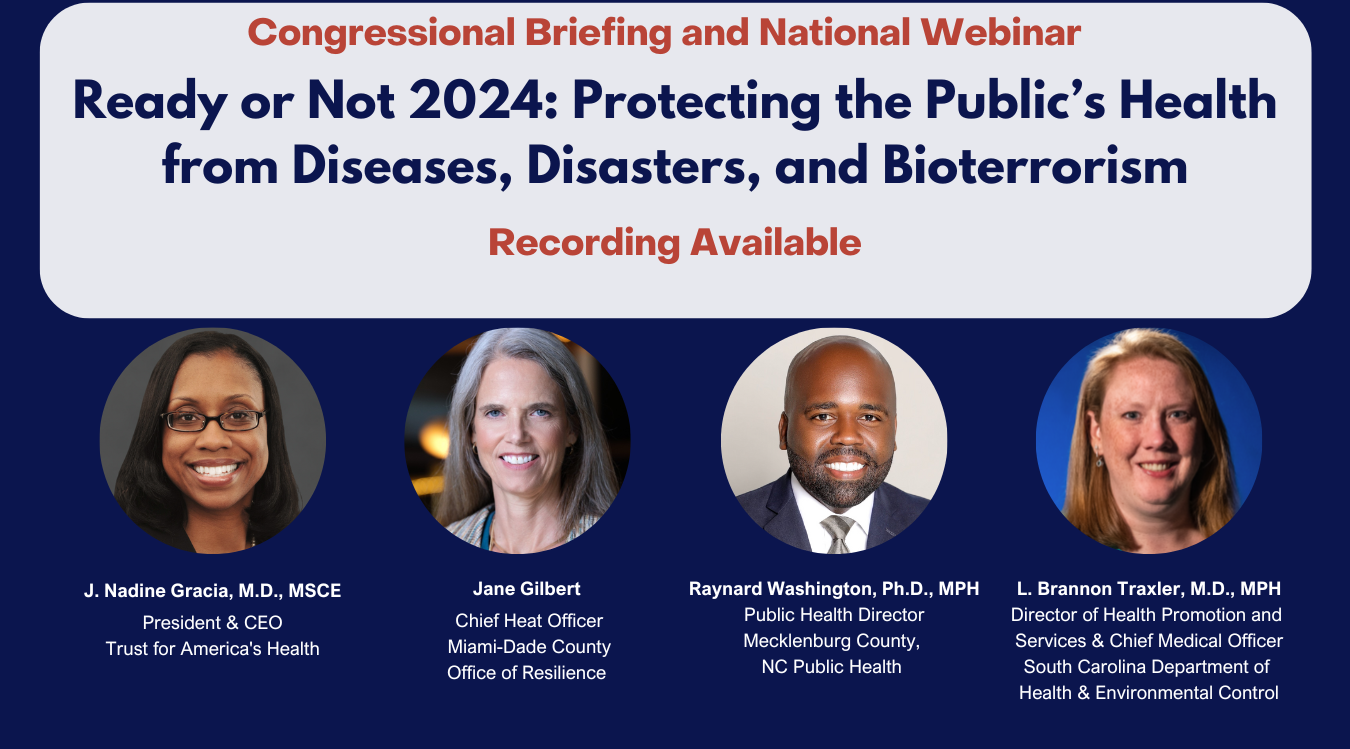
The Ready or Not 2024: Protecting the Public’s Health from Diseases, Disasters, and Bioterrorism report identifies gaps in national and state preparedness to protect residents’ health during emergencies and makes recommendations to strengthen the nation’s public health system and improve emergency readiness. As the nation experiences an increasing number of infectious disease outbreaks and extreme weather events, the report found that while emergency preparedness has improved in some areas, policymakers not heeding the lessons of past emergencies, funding cuts, and health misinformation put decades of progress at risk.
Resource:
Ready or Not 2024: State-by-State Factsheets
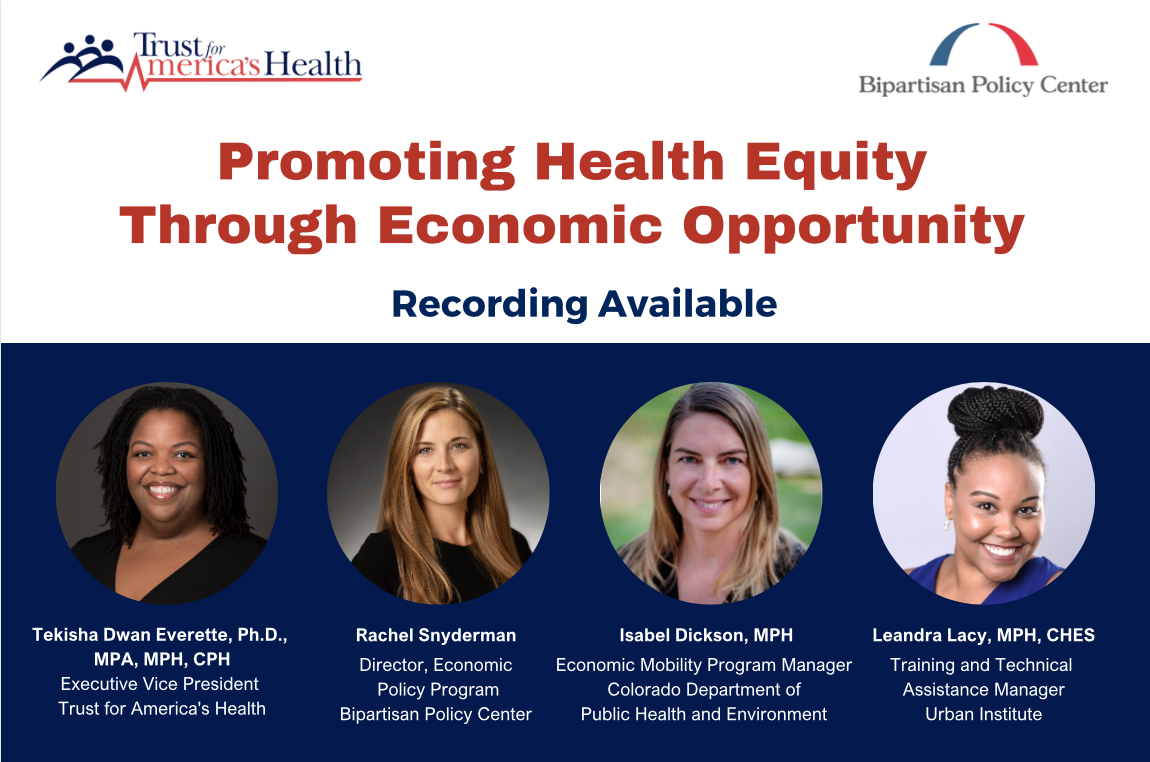
A person’s economic well-being can be a driver of their mental and physical health, while an individual’s overall health status can affect their income and economic well-being. One example of how overall health and economic well-being are connected was the COVID-19 pandemic, as people in the United States simultaneously experienced health and economic crises. While current unemployment rates are among historic lows, the uneven economic recovery spotlights the degree to which household financial security remains fragile in America, particularly along racial and socioeconomic divides. States are uniquely positioned to take action to fill gaps in the economic security safety net and adopt innovative solutions to help communities thrive.
A panel of subject experts discussed the impact of COVID-19 pandemic financial assistance programs and opportunities to enact evidence-based policies to further address the economic needs of communities, improve their financial stability, and promote their health and well-being.
Resources
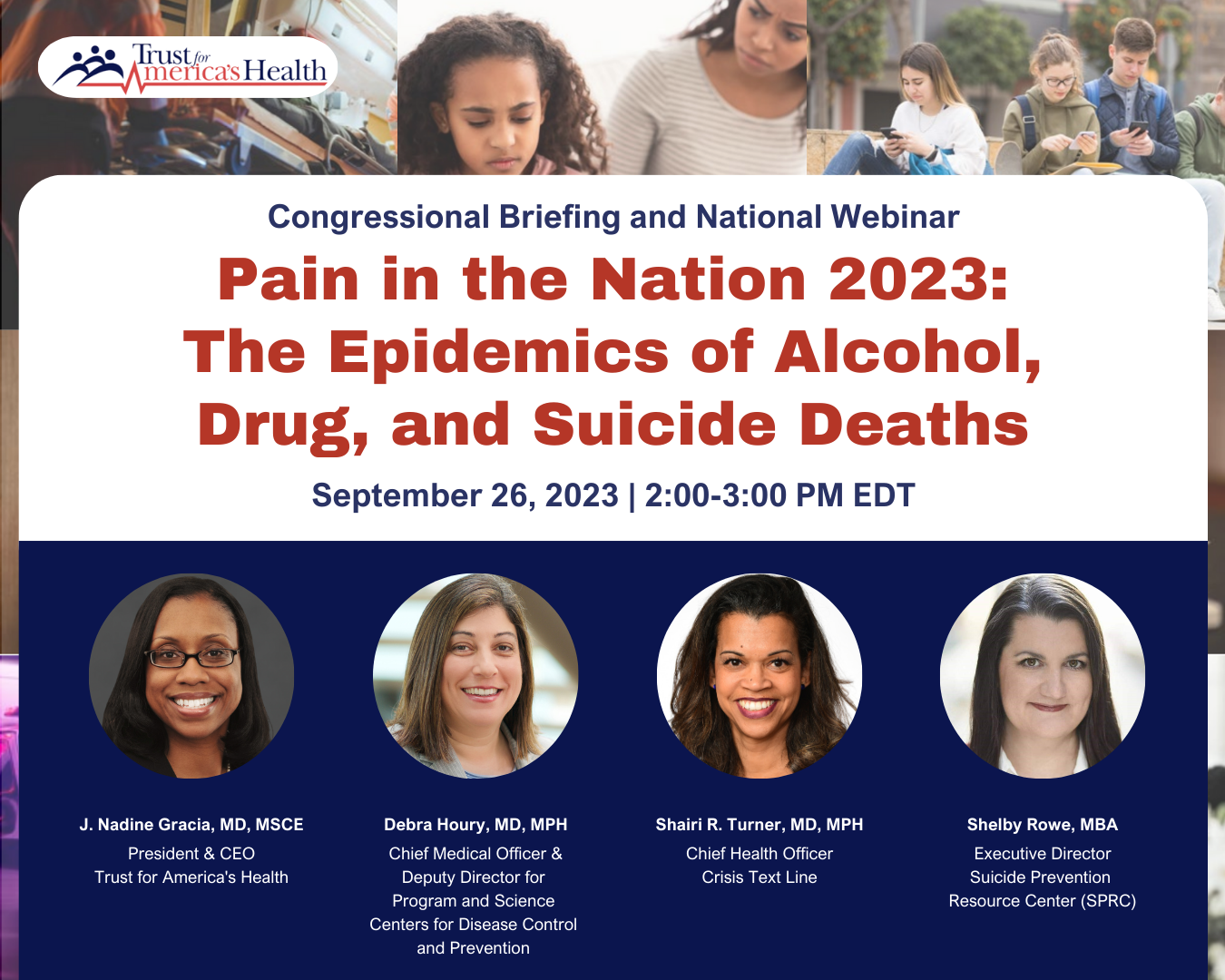
Trust for America’s Health (TFAH) will host a Congressional briefing, national webinar on our recently released report, Pain in the Nation 2023: The Epidemics of Alcohol, Drug, and Suicide Deaths.
TFAH’s Pain in the Nation 2023 report found that the death rate due to alcohol, drugs, and suicide increased by 11 percent in 2021. Deaths due to substance misuse and suicide have been rising in the U.S. for over two decades, with numbers doubling from 104,379 deaths in 2011 to 209,225 in 2021. The increase in 2021 death rates occurred among all ages, races, and geographic groups, but TFAH’s report found that increases were particularly high for youth suicides and drug overdoses among certain populations of color and in rural regions of the country.
Resources:
Trust for America’s Health
Crisis Text Line
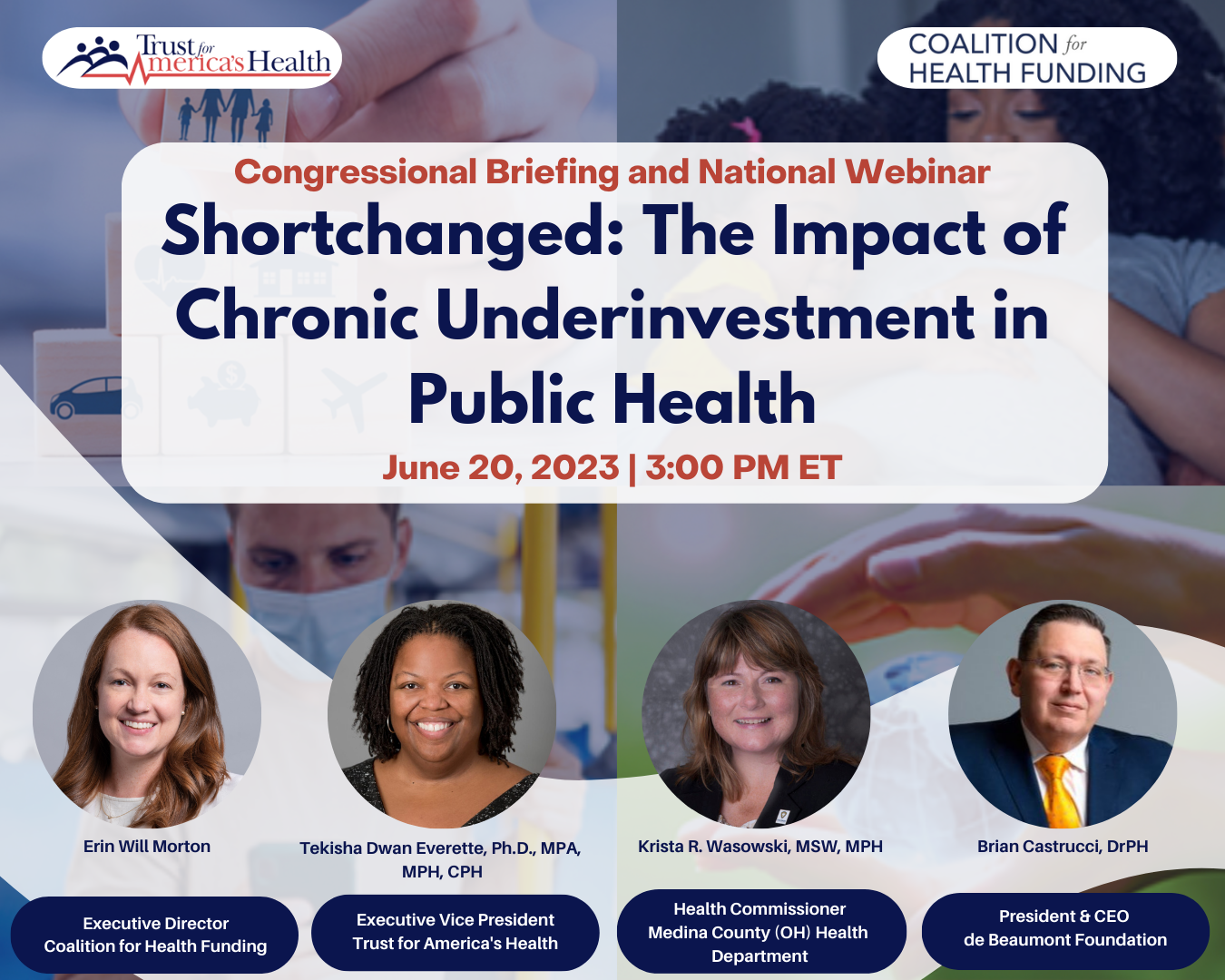
Policymakers are asking: With the United States spending far more on healthcare compared to other high-income nations, why does our nation still yield substantially worse health outcomes and what funding and policy actions must we take to see better results?
To shed light on that important question, Trust for America’s Health (TFAH) and the Coalition for Health Funding (CHF) are gathering experts in public health policy and funding on June 20th to discuss the critical need for increased, sustainable, and flexible funding that specifically targets public health and prevention. The discussion will focus on how to address the longstanding gaps in public health capacity resulting from chronic underfunding.
Resources:
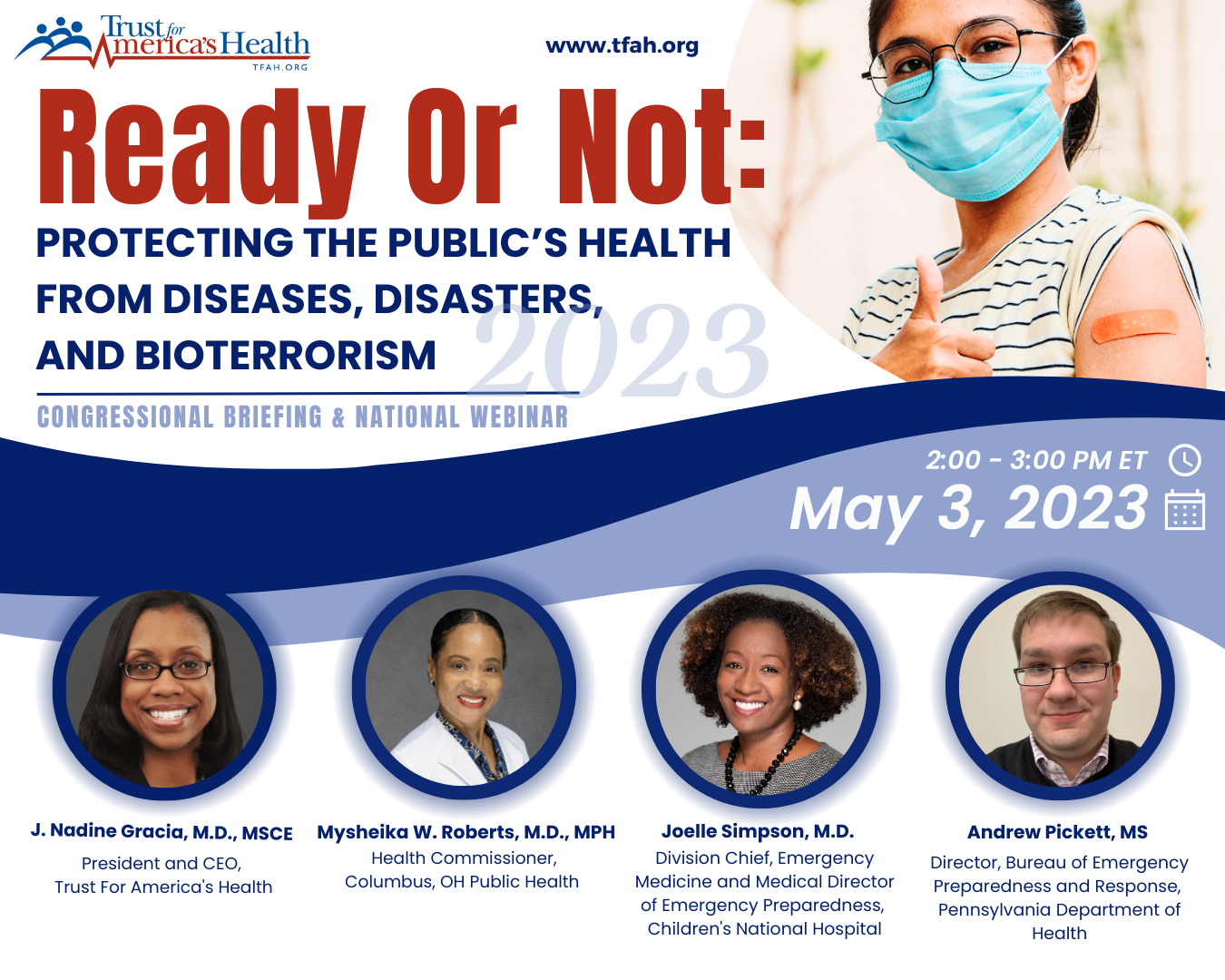
This briefing explores the findings from TFAH’s recent report, Ready or Not 2023: Protecting the Public’s Health from Diseases, Disasters, and Bioterrorism.
The past year alone saw the U.S. surpassing 1 million deaths due to COVID-19, decreasing rates of routine vaccinations, and increasing prevalence of health misinformation. In addition, last year the U.S. experienced 10 or more billion-dollar weather-related disasters for the eighth consecutive year. The webinar will review TFAH’s 2023 Ready or Not report which measures states’ degree of preparedness to respond to a wide spectrum of health emergencies and to provide ongoing public health services.
Subject matter experts discussed the nation’s readiness for public health emergencies, examine the findings of the report, and discuss key recommendations for policymakers.
Resources:
Trust for America’s Health
Children’s National Hospital
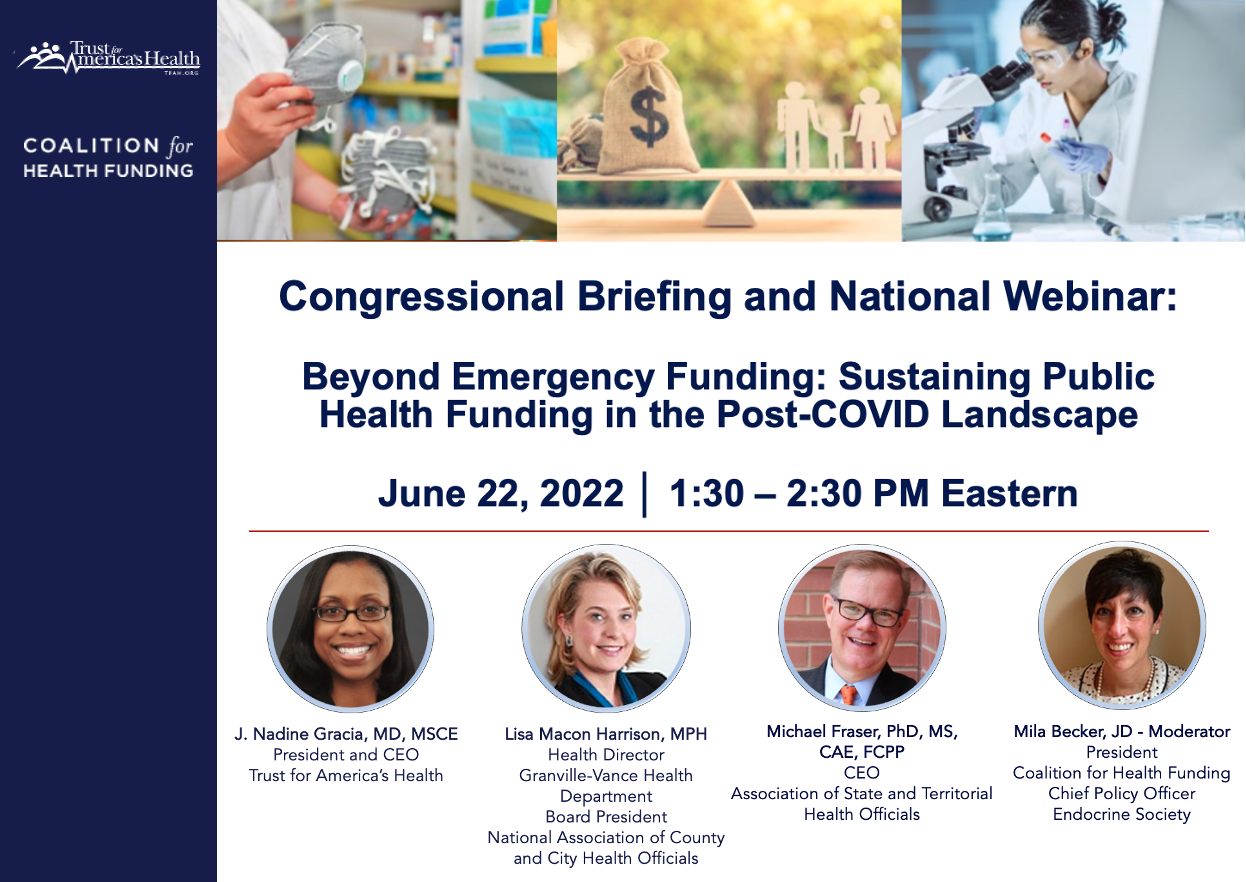
With Congress having spent billions of dollars fighting COVID-19 since early 2020, why should we increase annual funding for public health when we have so many other competing priorities?
TFAH and the Coalition for Health Funding convened experts in public health policy and funding to clearly explain the need for robust, sustainable public health funding and how it must be considered separately from the COVID-19 emergency.

As the nation enters its third year of the COVID-19 pandemic, this year’s report calls for urgent investment to create a public health system able to protect all Americans’ health during emergencies. The report measures states’ degree of preparedness to respond to a wide spectrum of health emergencies and to provide ongoing public health services.
A panel of subject matter experts discussed the nation’s readiness for public health emergencies, examined the findings of the report, and discussed key recommendations for policymakers.
Resources:
Trust for America’s Health
Office of Minority Health, Centers for Disease Control and Prevention
Articles shared by Céline Gounder, MD, ScM, FIDSA
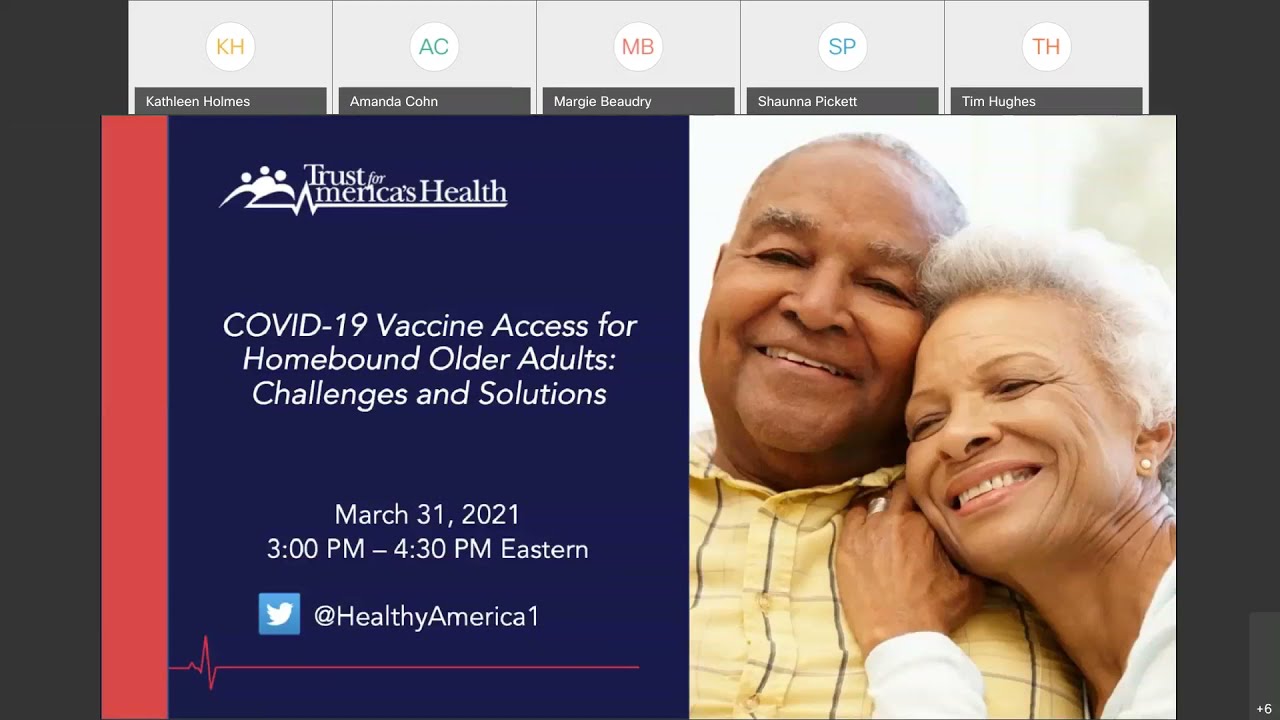
There are up to 15 million older adults and people with disabilities in America that are experiencing challenges accessing the COVID-19 vaccine due to issues that prevent them from traveling to a vaccine site. With support from The John A. Hartford Foundation and the Cambia Health Foundation, Trust for America’s Health is offering a webinar to explore the challenges and policy barriers to vaccine access and highlight innovative vaccine distribution practices. The complexities of vaccine distribution to homebound individuals was discussed, as well as the crucial partnerships among public health departments, aging services and other community stakeholders that are key to expanding vaccine access.
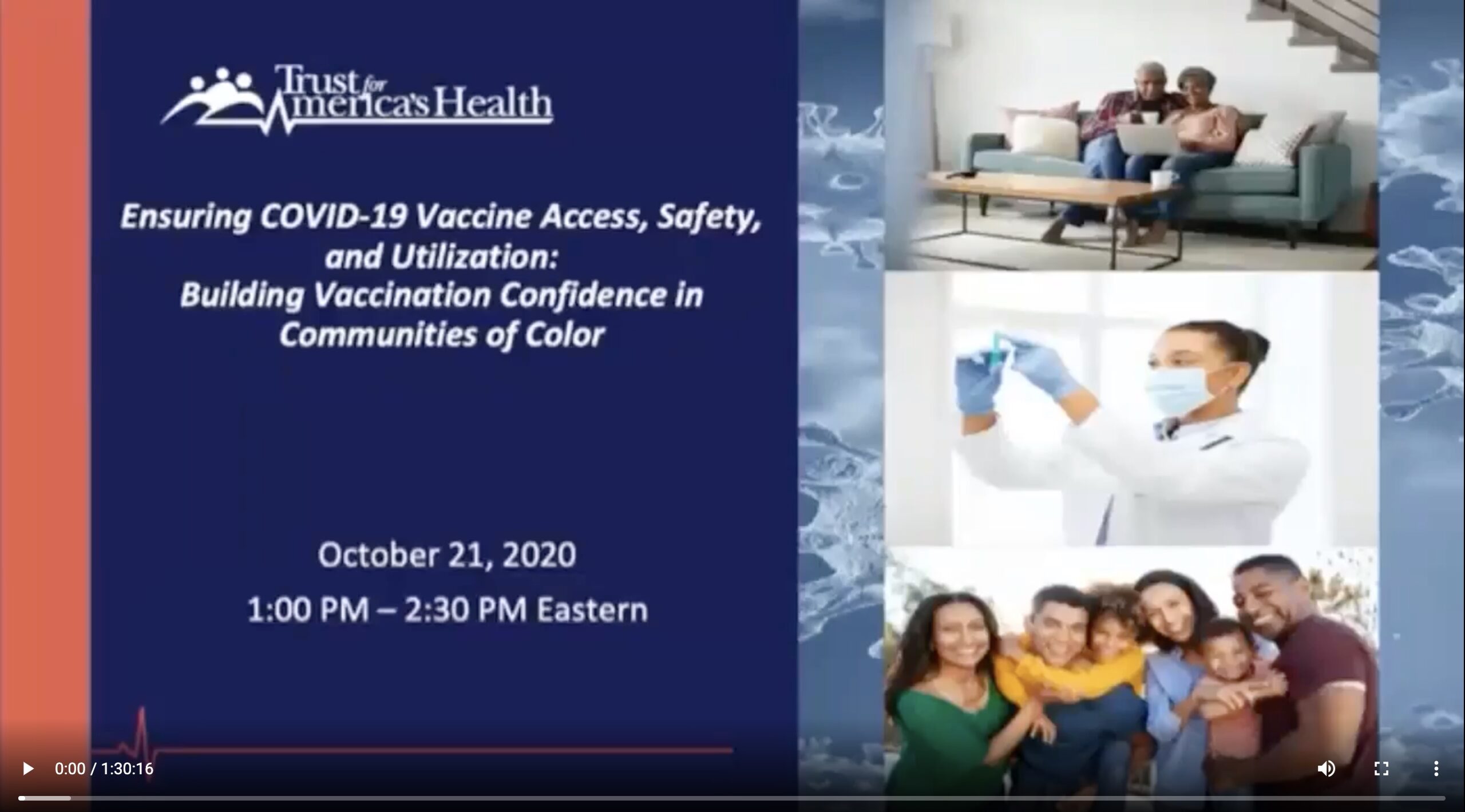
This webinar comes at a critical juncture as COVID-19 vaccine development continues. As has been the case with previous public health emergencies, the COVID-19 pandemic is exposing racial inequities that have long existed in the U.S. Racial and ethnic disparities also continue in vaccine access, due to contributing factors such as lack of access to health coverage and care and issues of distrust.
Featured experts shared with policymakers and stakeholders the historical reasons for vaccine hesitancy in communities of color, highlighted ongoing vaccination disparities and discussed policy recommendations to build vaccine confidence and access in communities of color.









